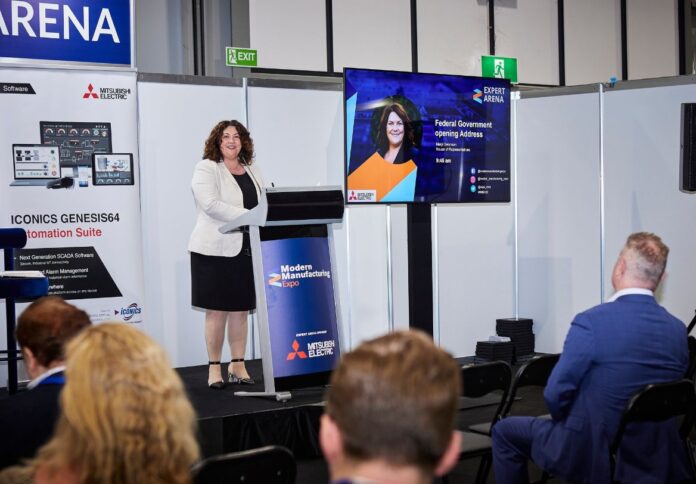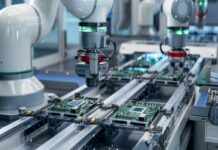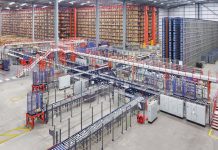
Media Release by Modern Manufacturing Expo
News of the Australian Federal Government’s $15 billion National Reconstruction Fund (NRF) has been welcomed by business leaders across all industries, with the local manufacturing sector in particular set to receive a major boost from the funding.
$1 billion has been allocated to the advanced manufacturing sector, with a further $1.5 billion for medical manufacturing and $1 billion for investment in critical technologies such as Artificial Intelligence and robotics, both of which form a core part of advanced manufacturing.
“This investment will help to ensure that Australia remains a world leader in innovation and manufacturing,” comments Marie Kinsella, CEO, International Exhibition & Conference Group. Marie and the IEC Group are organisers of the Modern Manufacturing Expo, an event that brings together key manufacturing decision-makers and industry-leading suppliers who want to explore advanced manufacturing techniques.
“The Modern Manufacturing Expo is uniquely placed to understand the perspectives of both local manufacturers and the government. Our event brings all the key players in the manufacturing sphere together under one roof to strategise and share ideas for moving the industry forward,” she adds.
The 2023 Modern Manufacturing Expo takes place in Sydney at the Sydney Showground from 20-21 September.
How government funding accelerates technology adoption
According to the government’s official release, the NRF will provide finance to projects in priority areas to leverage Australia’s natural and competitive strengths. The funding will be distributed in a number of different forms, including loans, equity investments and guarantees.
To ensure that the funding is allocated as efficiently as possible, the government will work closely with industry to develop co-investment plans that identify high-level investment opportunities in the manufacturing sector.
“The reality is that while many local manufacturers are interested in moving from traditional to advanced manufacturing techniques, the technologies involved require a significant financial investment that may be prohibitive to smaller manufacturers,” Marie explains.
“We believe that the NRF has the potential to accelerate this transition, by providing the funding necessary to invest in new technology, equipment and processes, as well as to upskill workers. This will help manufacturers to increase their productivity and competitiveness and create new employment opportunities within the sector.”
Why advanced manufacturing is critical to Australia’s economic growth
The NRF identified the seven priority funding areas for their potential to help Australian industry increase productivity, upscale competitiveness and address supply chain vulnerabilities. And while this benefits the manufacturing industry directly, it has positive knock-on effects for the economy at large.
“Advanced manufacturing is critical to Australia’s economic growth for several reasons, the first being that it enhances productivity and efficiency,” explains Marie. Advanced manufacturing techniques such as automation, robotics, and additive manufacturing can significantly increase productivity and efficiency, reducing the cost of production and making Australian manufacturers more competitive on the global market.
Other ways in which advanced manufacturing benefits the economy in both the long and short-term include:
- Stimulating innovation. The use of cutting-edge technology and materials can lead to new products and processes that boost innovation and drive economic growth.
- Creating high-skilled jobs. Advanced manufacturing requires highly skilled workers who can operate and maintain complex machinery and equipment. This creates well-paid, high-skilled jobs that can help support economic growth and improve living standards.
- Reducing reliance on imports. Developing local capabilities enables Australia to reduce its reliance on imported goods and services, boosting self-sufficiency and reducing our vulnerability to global economic events
- Supporting sustainable growth. Advanced manufacturing techniques can also help reduce waste, energy use and carbon emissions.
Modern Manufacturing Expo 2023 brings the industry together
Those interested in learning about the government support and other resources on offer for local manufacturers are encouraged to register for the free Modern Manufacturing Expo in September.
“The event is designed to connect manufacturers with the resources, experts and products they need to become a ‘smart manufacturer’ and drive operational efficiency within their business. It also illustrates for attendees that we have the potential to become a global hub for advanced manufacturing, with our world-class research and development capabilities right here in Australia – and government support only enhances that potential,” Marie concludes.




















